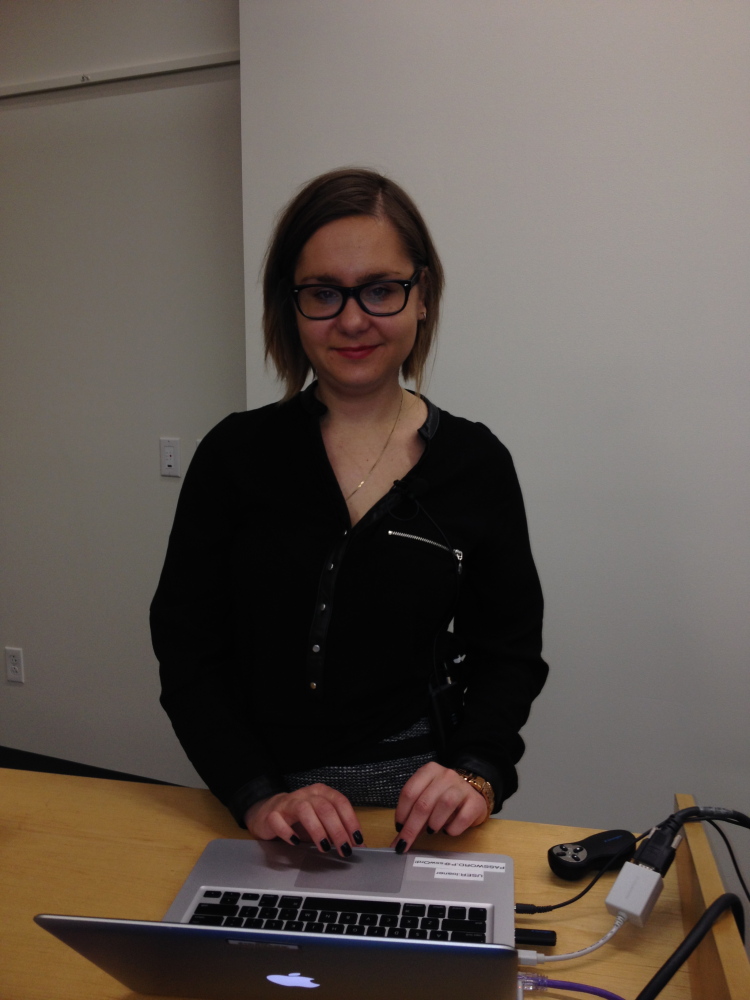WATERVILLE — Media coverage in the months leading up to the 2014 Winter Olympics in Sochi reinforced stereotypes and negative images about Russia, a professor from one of Russia’s premiere universities told a group of American students Monday evening.
But by the end of the Sochi Olympics, Americans and the rest of the world will have a more accurate and nuanced view of Russia, the professor, Ekaterina Sivyakova of Moscow State University, told the students during a guest lecture at Colby College.
Sivyakova, came from Russia to deliver the lecture, said that, before the opening ceremony on Friday, the foreign press had been consumed with negative storylines that distracted from the actual purpose of the games.
Before the Sochi Olympics began, she said, there was concern among observers that the Olympics would be just as drenched in politics and nationalism as the 1980 Olympics in Moscow were.
“These Olympics were about politics, not about sports,” she said. “We don’t know how political these Olympics will be and this raises a lot of concerns.”
The global news cycles dwelled on corruption within the Russian political system, security and safety concerns, human rights issues such a gay rights and failures in the effort to build the infrastructure to host the games in time.
“Most journalists were trying to investigate something,” she said. “They were trying to find something.”
She displayed a series of magazine covers from the Economist, Time, Bloomberg, the New Yorker and the New Republic, many with grotesque caricatures or depictions of Russian President Vladmir Putin.
“The main accent of the articles is criticism of Putin’s politics because Putin is considered a symbol of Russia, a symbol of Russian politics,” she said.
One magazine cover was a hodgepodge of Russian stereotypes, with a fur-capped bear wearing old military medals and standing on rustic wooden skis.
Meanwhile, within Russia, she said state-sanctioned media channels are biased in the opposite direction, showing only the most positive views of the event preparations to a Russian public that remains largely unaware of the negative press the country has received.
“The average Russian doesn’t have any chance to see that coverage of the Olympic games,” she said.
However, Sivyakova said, she sensed a major shift in the coverage from the moment the opening ceremonies began, giving the press a new focal point for their coverage.
As evidence, she pointed to two articles in the New York Times. The first, printed immediately before the opening ceremony, characterized the event as “an Olympics in the shadow of a war zone,” focusing on the potential for violent conflict between militants and Russian national security forces.
The second New York Times article, written immediately after the opening ceremony, made no mention of any of Russia’s security woes, but instead painting the country in glowing terms. “In a big way, Russia is back,” it said at the end of its opening paragraphs.
As confusing and contradictory much of the press coverage of the games has been and is likely to be in the future, Sivyakova predicted that digital and social media are giving more people a more nuanced, and real, view of Russia than the media every could.
“Images of Russia will be more balanced after the games,” she said. “It will be more real.”
She recommended the American public unplug from the political commentary and watch the sports.
“It will be good to turn the politics off and just watch the games and enjoy the sport,” she said. “And finally, we will find out where the Olympic spirit is hidden in Sochi.”
Matt Hongoltz-Hetling — 861-9287 mhhetling@centralmaine.com Twitter: @hh_matt
Send questions/comments to the editors.



Success. Please wait for the page to reload. If the page does not reload within 5 seconds, please refresh the page.
Enter your email and password to access comments.
Hi, to comment on stories you must . This profile is in addition to your subscription and website login.
Already have a commenting profile? .
Invalid username/password.
Please check your email to confirm and complete your registration.
Only subscribers are eligible to post comments. Please subscribe or login first for digital access. Here’s why.
Use the form below to reset your password. When you've submitted your account email, we will send an email with a reset code.